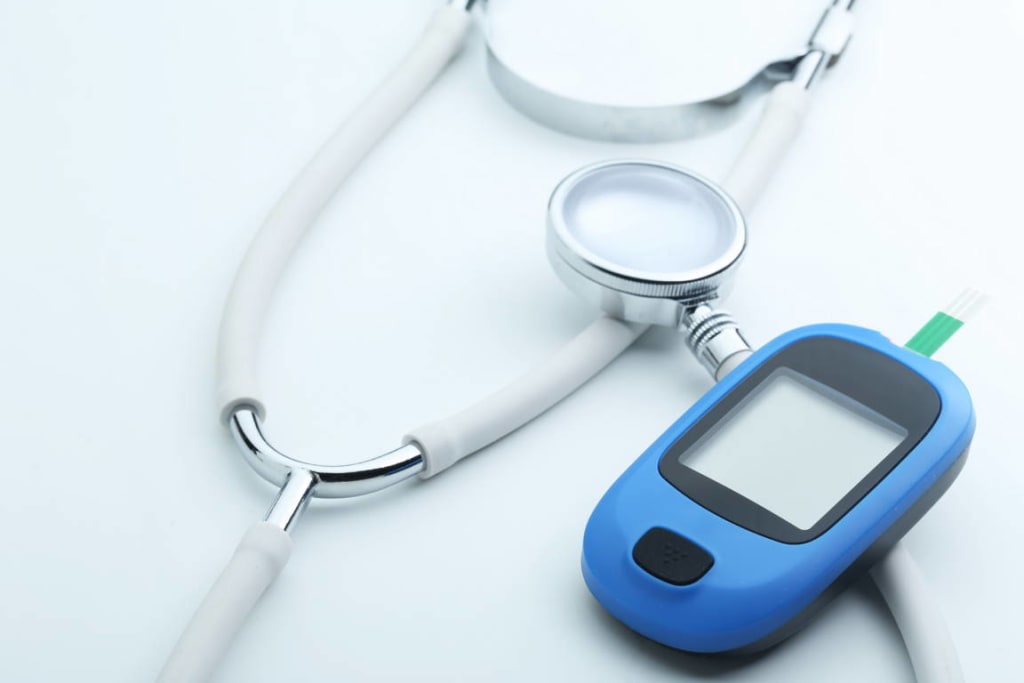What Is Diabetes? What Does Diabetes Mean for the Body?
In today’s article, we will know What Is Diabetes? What Does Diabetes Mean for the Body?

Today we will know about diabetes, often people also call it diabetes blood sugar. Whatever type of food we eat goes directly to our stomach and it goes into our blood through Antonia. Whatever we eat goes into our stomach, then all those things in the stomach go into the blood. When glucose does not enter the blood cells, then we consider it to be diabetes.
When we say anything, whatever it is, it goes into our blood and after it goes into the blood, it either gets stored in our muscles or gets stored in our liver. There are two conditions in this – our body is aware that it needs glucose all the time and our brain is such an organ that needs glucose continuously.
For that, we cannot eat all the time, so what does our body do, which is the muscles and liver. The entire glucose gets stored in it, then as soon as our brain needs glucose, then we do not eat all the time, otherwise when the glucose in our body increases. Then there is an organ in the body which we call Penkiraj. Our brain gives a signal to the pancreas, then the pancreas releases a hormone which is called insulin.
Who Gets Diabetes
Various people who are not overweight or who do not eat a lot of sugar have been resolved to have diabetes. It strikes everyone. Also, there is some indication that this would be a receiving issue in general. If you have a first-degree relative who has diabetes, you are more likely to have this problem.
It is a condition that is affected by the pregnancy and the mother’s frustration with her body’s use of the normally made insulin. This is achieved by the synthetic substances prescribed by the pregnancy and makes the mother's insulin safer. Persistently, the mother develops high blood sugar levels, known as hyperglycemia.
If you have type 1 diabetes, your goal is to keep your blood sugar or sugar in the normal range, your doctor may suggest a combination of insulin therapy, other medications, and eating a healthy diet to keep your blood sugar in check. And getting regular exercise because your pancreas doesn’t make enough insulin. You’ll need to take insulin. This will replace what your body makes.
When Does Diabetes Occur
Hypoglycemia refers to diabetes. It occurs when people have too little sugar or glucose in their blood. While it is most of the time a result of diabetes treatment, hypoglycemia has different causes and can affect anyone. People who have this problem have low glucose levels.
Since the high glucose level in the blood of a person with diabetes affects the central vascular structure after some time, it also affects the nerves in different parts of your body. Most of the time the nerves in the legs are affected. Farthest from the brain, it is here where people with diabetes who have suffered nerve injuries do not habitually feel cold or tortured or heat.
Signs and Symptoms of Diabetes
What are the Signs and Symptoms due to which we can say that diabetes has happened?
Increased Thirst – If a patient has diabetes, then he feels very thirsty, due to which he drinks a lot of water.
Frequent Urination – When the patient drinks a lot of water, then he also gets a lot of urine. Which we call having frequent urination.
Extreme Hunger – The patient often goes to the bathroom to urinate, due to which he also feels very hungry.
Unexplained Weight Loss – He is unable to explain why my weight loss is happening and why. Meaning his weight loss is also there.
Fatigue – There is a lot of tiredness at that time, and there is pain in the whole body.
Irritability – He gets irritated with everything.
Mechanism/Causes
Today we will know about diabetes, often diabetes is also called blood sugar. Whatever type of food we eat goes directly to our stomach and goes into our blood. Whatever we eat goes into our stomach, then all those things in the stomach go into the blood. When glucose does not enter the blood cells, then we consider it to be diabetes.
When we say anything, whatever it is, it goes into our blood and after it goes into the blood, it either gets stored in our muscles or gets stored in our liver. There are two conditions in this – our body is aware that it needs glucose all the time and our brain is such an organ that needs glucose continuously. For that, we cannot eat all the time, so what does our body do, which is muscles and liver.
The entire glucose gets stored in it, then as soon as our brain needs glucose, then we do not eat all the time, otherwise when the glucose in our body increases. Then there is an organ in the body which we call Penkiraj.
Our brain gives a signal to the pancreas, then the pancreas releases a hormone which is called insulin. Insulin works by converting the extra glucose in our body into glycogen. That glycogen gets stored back in our muscles. Whenever our body and liver need glucose, again the brain supplies glucose.
If there is a decrease in glucose in our body, then our body detects it and again sends a signal to the brain pancreas, which releases a new hormone called glucose. Glucose stores the same glycogen as glucose because there is less glucose in our bodies. But at that time we cannot eat because we may be on a bus, train, or motorcycle at that time. When there is a shortage of glucose in the body, then the glucose flows back into the body.






Comments
There are no comments for this story
Be the first to respond and start the conversation.